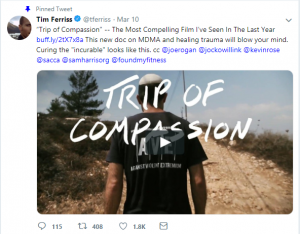Before we start, I’d like to make a statement. The article you are reading is not from a digital agency owner promoting his SEO agency—instead, this an article from an agency owner who has seen many different models. Throughout this article, I’ll be suggesting some questions worth asking as you begin your journey of choosing the right SEO partner.
I’ve been in this field for nearly 30 years. In my decades of working in digital marketing and consulting roles, I had always made it a point to understand the process other SEO agencies use. I have also seen some agencies evolve as SEO became extremely tougher in the last five years. However, others firms have stayed with their original model, much to the detriment of their customer.
You Get Good Results by Staying Current with the SEO Industry
It’s true; not all SEO agencies are alike. But that is good news for a business owner. Not all models fit all businesses (as we will discover throughout this text). It’s all bout finding the right SEO company for your business. It’s no different than finding the right partner for marriage. Or choosing the right pants for your body.
It’s important to realize that the digital marketing consulting industry is like any other industry. We have all degrees of talent and service providers. Like doctors or lawyers, some SEOs are masters of their craft, while others are still growing and learning. But unlike a doctor or lawyer, you don’t need any certifications to start consulting on marketing. A digital marketer of any kind, whether in SEO, SEM, social media, etc., is not required to continue taking exams and studying new information. I have seen plenty of “SEO experts” who are not experts by any definition.
But plenty of useful information is available online. Everything from warning signs to brand new tricks that others are finding valuable. It’s all there, but it takes a lot of work to stay up on it. That’s one of the big reasons you’re looking for an SEO company in the first place! You don’t have that kind of time.
Possible question to ask: How does your agency stay current with SEO trends?
It takes more than traditional tactics like title tags and keywords to move a page these days. If this is all the salesperson can bring to the discussion, watch out.
The SEO industry is virtually open-source. The information is all within the SEOs who share their opinions and findings publicly online. Through trade websites like Moz and Search Engine Land, to communication on Twitter and Facebook Groups. If the answers suggest a deep connection with the SEO industry, that is a great sign. But it’s one thing to read a blog and another to have practical experience in the field. Look for answers that suggest education through experience. SEO is all about experimentation to achieve a better result. The best knowledge comes not from reading but from experiencing SEO campaigns first-hand.
What do you really need from an SEO company?
When searching for SEO help, it’s a good idea to search for a service model that fills the gaps your current marketing team is lacking. With SEO, you get out what you put in. So companies hire SEO agencies to be the entire team or augment an existing SEO team.
But some agencies are more robust in one area than another. For instance, let’s pretend your company already has a solid developer who has built your site with most SEO best practices. It would not make sense to hire an SEO agency that is strongest with technical SEO since this is not your primary area of need. Just like you wouldn’t take a car that needs bodywork to a brake shop.
Possible question to ask: What are your SEO strengths and weaknesses?
Optimizations fall into several categories within SEO: Technical, content, link building, and local SEO. Identify the categories where you are most weak, and prioritize your questions around those areas. Don’t let the salesperson walk you into a prepared answer. Use some of your time to put the salesperson on their toes as you talk about specific website problems.
The weakness question may surprise you. I suspect most companies will say they’re amazing at all parts of SEO. And it may be true. But my company is often referred to by other SEO agencies when they know the specific challenge is not in their wheelhouse. You might want to dig a bit for that answer.
Free Work, RFPs, and Performance Deals
Perhaps you don’t know enough about SEO to talk about your specific SEO problems. This is possibly why you are looking for an SEO consultant in the first place. So you might consider ways to mitigate your risk with some clever requests that force the SEO agency to prove their worth.
As a business owner, I know how scary it can be to spend your money on an unknown entity. You want to build faith in a good SEO partner, but asking for free work is tricky. Speculative work, which is more common in brand marketing, graphic design, and development work, is not standard with digital marketing agencies.
Most high-end agencies won’t consider free work any more than a doctor or lawyer would. Experienced SEOs may even find the request insulting. However, you should expect some degree of free consulting when looking to engage with an SEO firm. After all, any agency should want to make sure they can help you. Just remember, free consulting is a meet and greet with casual business conversations, where free work is asking quite a bit more. Don’t ask for free work. That’s not professional.
An RFP (Request For Proposal) might be another option that comes to mind. An RFP is a document sent to an agency from a prospective customer that asks for specific information to be included in a proposal. The RFP certainly favors the prospective customer because they can get responses from many agencies without hours on the phone doing introductory calls.
However, more and more, RFPs are being rejected by top SEO agencies. Why? They are highly one-sided. I personally will not entertain an RFP unless I get to ask some questions to the prospective customer first. Not only is there a risk of wasting many hours creating a large document if I do not win the contract, but I want to know if the customer will be a good fit for my SEO agency. That’s right—while you’re interviewing the SEO company, they are probably interviewing you as well. It takes two to tango, and I want to make sure the prospect is one that my team will be able to help. I want to make sure we like the opportunity and the people, which is virtually impossible to do with an RFP response. Why take the risk and sign up with an SEO agency that seems good on paper but never had the chance to earn your trust in person?
Finally, to mitigate your risk of hiring a bad SEO company, you may ask for some type of performance model. It makes sense. If the SEO company can make you ten thousand dollars, then you could give them a commission of x%. That’s certainly a win-win scenario.
But this doesn’t make sense for most SEO campaigns. It makes more sense with an advertising channel where you purchase placement. You know people saw your ad. You know how many clicks the ad will get. And you know, on average, how often people purchase from those ads. SEO is nothing like this. An SEO cannot make a guarantee about rankings. (If they do, you should be very wary.) The job of an SEO is to influence Google and searchers alike, not manipulate them. Manipulating Google is a fast pass to the penalty box. If you are not the best result, it could take months or years to get your website favored above others. An SEO could be working for free for quite some time.
One Model Does Not Rule Them All
In the earliest days, I offered SEO consulting on my own. It was a one-person show. I set out to help companies overcome their specific SEO challenges. I had no specific product. I had no scalable services. When I was told of a problem, I went in and figured out a solution. My clients paid me for this. When my sole proprietorship, Greenlane, became an agency in 2012, we kept the same model.
But in other jobs, I worked in the retainer, percent-of-spend, rev-share, and a value-add model. There are others. I’ve seen SEO agencies that offer duplicate deliverables to every client. I’ve seen some that (sometimes secretly) have cheaper off-shore labor executing the deliverables. Each has benefits and detriments.
As a customer, you want to understand the model entirely. You’ll want to understand the benefits to both parties. For example, a percent of spend model, common with SEM campaigns, makes sense at first glance. The agency does work based on the amount of work you have available, which is equal to the cost of the ads. In this case, the agency will make money if you spend more. So the agency has a self-interest in convincing you to spend more. But if the agency does not have a solid plan created with your data, you should pump the brakes. Anyone can spend your money. But not everyone can return an ROI.
Possible question to ask: How does your model work, and why would it be best for me?
Every company will tell you they are the best SEO company in the market, so make them prove that claim. Do not be afraid to dig in here. Different companies have different models and philosophies for their SEO services. There is no expectation for you to know how SEO works, so inquire. Go as far down the rabbit hole as you can. If the responses feel a bit fragmented, you might be talking to an agency that doesn’t have the experience to reach your SEO goals. If the model, and the promises, sound too good to be true, they probably are. Do they have case studies? Do they talk about organic traffic and revenue, or just rankings (the former obviously being preferred)?
Slick Sales and Fairy Tales
We have clients who will share the pitches they receive from other agencies. It’s not uncommon to see misinformation meant to create a panic to spur action from the recipient. I wish I could say the SEO industry is above that tactic.
I know some SEO agencies that have more salespeople than actual SEOs. I call that the “churn and burn” model. The client gets mad after a few weeks because they realize the service is more amateur than promised. “No problem, quit!” says the SEO agency. “The sales team has already convinced 100 more customers to take their place.” This is my least favorite model because they prey on small budgets by making big promises. They create a belief that you can defeat your biggest competitor with a few hundred dollars a month.
In the past decade, I have personally observed a wider gap between high-end and low-end services. It makes sense. As much as technology has given marketers tools to do their job, it also has made the job harder. Google is far more complex to understand today. Social platforms have more complicated advertising platforms. The way users consume display advertising and email is shifting. There are more competitors than ever. Everything in digital marketing gets more challenging as it ages. An impactful tactic that takes only a few hours must be traded for a more detailed digital marketing strategy. Time needs to be added. And we all know time costs money.
I remember a recent conversation with an owner of a small sporting goods retailer. The company had just fired its SEO agency. The owner told me SEO doesn’t work, convinced there is no way to compete with the big competitors. I learned he was spending $ 1,000 a month with an SEO firm, yet the only thing he gained was a deficit in his profits. When I explained his $ 12k a year outlay was barely a scratch against the likes of Dick’s Sporting Goods, he then realized a critical point. He wasn’t competing only with Google’s rankings engine. He was competing with all the competitors who are competing for Google’s rankings. He went to war with a slingshot because a salesperson told him he’d be successful.
Possible question to ask: What are your companies opinions on my specific SEO challenges?
Sometimes SEO sales are full of pedantries. For example, if the salesperson mostly talks about header tags, which are small contributors to the big picture of SEO, you may be talking to an amateur agency. I would be more comfortable hearing them discuss conversion rates, the acquisition of links, content marketing, usability, and other essential, needle-moving SEO things. You want to listen for the expertise you can’t find immediately by doing your own Google searches.
Final Thoughts: We Are In This Together
Digital marketing is truly a “you get what you give” exercise. Want to invest a little? You could get a little. Want to invest a lot? You could get an even bigger online presence. When talking to a marketing agency, you’re essentially counting on them to make the most of your budget. Make them earn your confidence. After all, they’re going to be spending your money on experimentation. There’s just no way to do any digital marketing without a bit of exploration.
So I suggest looking for a long-term partner, but not long-term contracts. I often talk to companies that jump to different agencies every couple of years. Maybe it’s because of a personality clash or lack of success. Whatever the reason, a couple of years is not a ton of time for a marketing agency that only does a limited amount hours a week on your account. It’s like a football team that changes coaches every few years. How often does that team ever see a Super Bowl?
But if you start seeking someone you can grow with from the start, and exercise proper patience and accountability, they’ll grow with you. Meaning, they’ll become as knowledgeable as your best insiders. They’ll win, fail, and learn. You’ll find they’re very much like a member of your own team. They become your performers. They become profit centers.
So my final piece of advice? Look for a long-term partnership. Not just a short-term vendor.
Digital & Social Articles on Business 2 Community
(46)
Report Post





